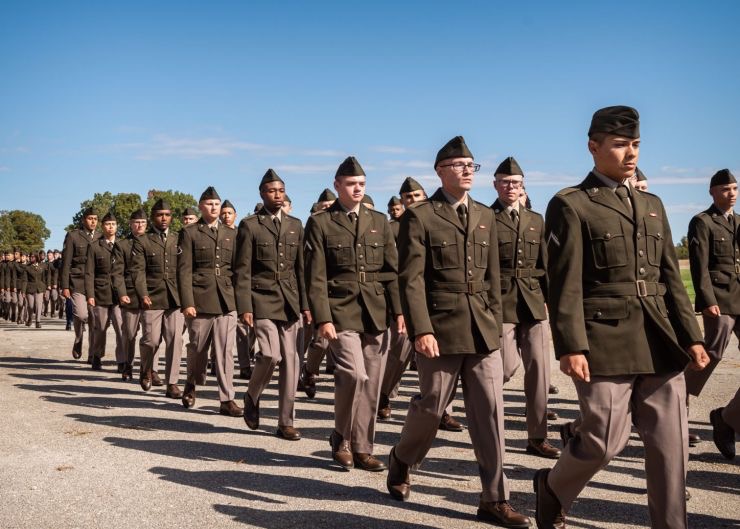When your loved one joins the Army, they don’t just start a new job—they step into a world with its own language, culture, and traditions. As a family member or supporter, learning the basics will help you follow their journey, understand what they’re experiencing, and share in their achievements. Here’s your quick guide to the core parts of Army life every supporter should know: ranks, roles, and values.
Ranks: Who’s Who in the Army
Rank isn’t just about authority—it defines responsibility, leadership, and progression. Your Future Soldier will likely start as an E-1 Private or higher if they qualify for advanced enlistment. Enlisted ranks (E-1 to E-4) are Junior Enlisted—Privates to Specialists—focused on learning, following orders, and completing tasks. From E-5 to E-9 are Non-Commissioned Officers (NCOs) such as Sergeants and above, responsible for training, mentoring, and leading troops. Officer ranks (O-1 to O-10) are commissioned leaders who focus on planning, strategy, and command, with titles like Lieutenant, Captain, Major, or General. Your Soldier will be led day-to-day by NCOs and guided strategically by officers, and you may hear leadership titles like “Drill Sergeant,” “Platoon Leader,” or “Company Commander” during Basic Training and beyond.
Roles: Jobs and Career Paths
Every Soldier has a Military Occupational Specialty (MOS)—their job within the Army. This could be 11B Infantry Soldier, 68W Combat Medic, 91B Wheeled Vehicle Mechanic, or 42A Human Resources Specialist. The Army has hundreds of MOS options, from intelligence to aviation to logistics, many of which lead to advanced certifications and civilian career opportunities. Ask your Future Soldier their MOS—you’ll hear it often in the years ahead, and knowing it will help you better understand their role.
Values: What It Means to Be a Soldier
The Army instills a set of seven core values that shape every Soldier’s character and actions. Loyalty means staying faithful to the Constitution, the Army, and their unit. Duty is fulfilling obligations without excuse. Respect is treating others with dignity, regardless of rank. Selfless Service puts mission and team before self. Honor means living up to the Army’s moral code. Integrity is doing what’s right even when no one is watching. Personal Courage is facing fear, adversity, and moral challenges head-on. These values are more than words—they’re a way of life that begins in Basic Training and often lasts a lifetime.
How It All Comes Together During Basic
In Basic Training, your Future Soldier will train under a strict hierarchy, be evaluated on their performance, and learn to operate within a highly disciplined team. Days will be long, challenging, and physically demanding, but every task—from drill formations to field exercises—reinforces the values, ranks, and roles they’re learning. Even if you don’t experience it firsthand, understanding this framework helps you speak their language and support their growth with confidence.
Last Call
You don’t need to memorize the entire Army manual to be an amazing supporter, but learning the basics shows your Future Soldier that you care, you’re invested, and you’re proud of their journey. Whether they’re a brand-new Private taking their first steps or on the path to leadership, your support is a force multiplier in their success—and that’s something no rank can measure.
I’ll be back next week with another update. Until then, Hooah!
SGM Kris Broadus, U.S. Army (Retired)
